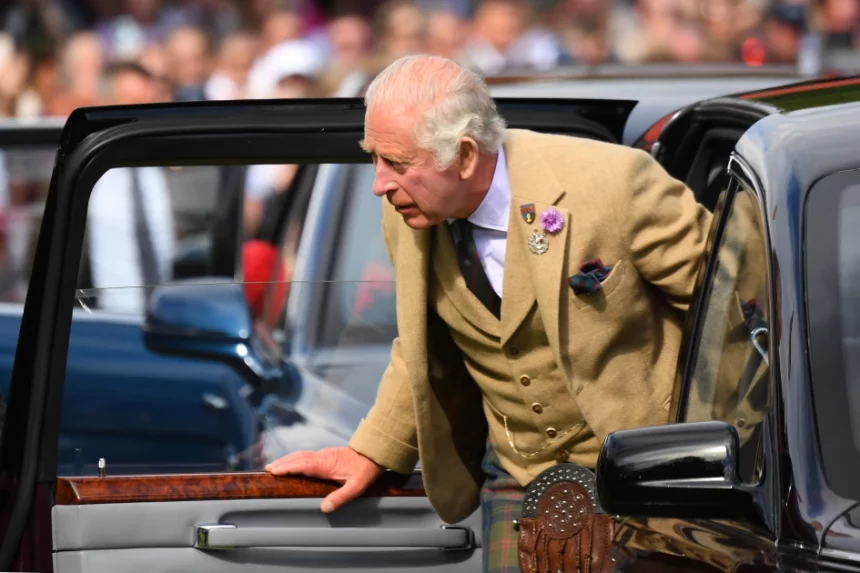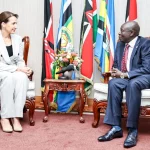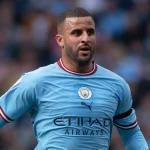Here are five key moments in Charles III’s first year as king:
Inaugural address
Charles succeeded his mother Queen Elizabeth II immediately after her death at the age of 96 on September 8, 2022.
He appeared visibly moved in his first televised address, paying tribute to her record-breaking 70-year reign and promising lifelong service.
“To my darling mama, as you begin your last great journey to join my dear late papa, I want simply to say this: thank you,” he said.
Charles conferred the title of Prince of Wales to his eldest son and heir Prince William, and expressed his love for younger son Harry and his wife Meghan, who left the royal fold in 2020.
The king had been at his mother’s bedside as she passed away at Balmoral in northeast Scotland, then returning to London to greet crowds outside Buckingham Palace who had gathered to pay their respects.
He toured the UK during the 10-day mourning period before his mother’s state funeral on September 19.
Christmas message
Charles made his first Christmas address to the UK and the Commonwealth on December 25, continuing a tradition that began in 1932.
From St George’s Chapel at Windsor Castle, west of London, where his mother and father Philip were laid to rest, he again thanked people for the “love and sympathy” expressed following her death.
But he also hailed the “heartfelt solidarity” of Britons helping others struggling with a worsening cost of living crisis.
More than 10.6 million people watched the speech in the UK — a record.
Crowning glory
The religious ceremony to officially recognise Charles as king took place on May 6 at Westminster Abbey in central London.
The coronation was the first in Britain since his mother’s in 1953 and the first of a king since 1937, and saw Archbishop of Canterbury Justin Welby place the golden Crown of St Edward on his head.
Most of the Christian ceremony stayed true to its ancient roots but the service was adapted to reflect the changing nature and diversity of modern Britain.
Charles’s younger son Prince Harry, who in January published a tell-all memoir about royal life, played no formal role and was absent when the family greeted the public from the Buckingham Palace balcony afterwards.
State visit
Charles and his wife Queen Camilla had been due in France in March for their first state visit but the trip was postponed due to civil unrest across the Channel.
Instead, the couple headed to Germany, where Charles made a historic speech mainly in German at the parliament building in Berlin.
In it, he called for unity against the Russian invasion of Ukraine, and deplored the return of conflict to Europe.
The France visit has been rescheduled for later this month.
‘Not my king’
The death of Queen Elizabeth II provided British republicans with an opportunity to publicise their calls to abolish the monarchy.
Protesters waving placards and wearing yellow t-shirts proclaiming “not my king” have become a common sight at royal walkabouts in the last year.
At the coronation, hundreds gathered in London’s Trafalgar Square and some 60 were arrested in a police operation that provoked an outcry about freedom of speech.
Charles also had to contend with egg-throwing on a number of occasion, although none hit their target.



